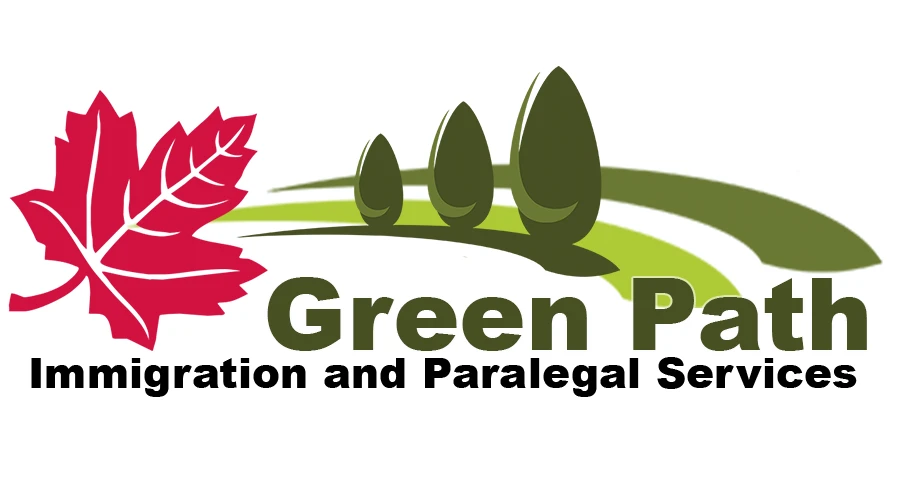
Invitation Letters
Citizens of certain countries seeking for a Temporary Resident must produce a letter of invitation from their host in Canada, according to the Immigration and Refugee Protection Act and its Regulations. Please keep in mind that receiving a letter of invitation does not guarantee that you will receive a visa. You can draft your own letter of invitation, although it is advised, and certain visa offices may demand that it be notarized by a Notary Public. To learn more about the requirements, contact the visa office that will be processing your application.
You should write the letter in a sincere manner. You must include accurate information and intend to follow through on the promises expressed in the letter. To the individual you’re welcoming to Canada, send your notarized letter. When they apply for their Temporary Resident Visa outside of Canada, they must send this letter to the Canadian Embassy or Consulate.
The following information regarding the foreign national must be included in your letter:
⦁ Name in its entirety.
⦁ Date and place of birth
⦁ The address and phone number of the individual.
⦁ Your connection to the person who is being invited.
⦁ The trip’s main goal.
⦁ How long do you expect the person you’re inviting to stay in Canada?
⦁ Information on where to stay and how much it costs to live.
⦁ The dates on which the person you’re inviting intends to enter and exit Canada.
⦁ The following information about yourself must also be included in your letter:
⦁ Name in its entirety.
⦁ Date and place of birth
⦁ In Canada, there is an address and a phone number.
⦁ Occupation.
Whether you are a Canadian citizen or a Permanent Resident, you have the right to vote. A photocopy of a document showing your Canadian residency. For example, if you were born in Canada, you’ll need a Canadian birth certificate, and if you’re a naturalized citizen, you’ll need a Canadian citizenship card. If you are a Permanent Resident, you must provide documentation of your residency (a copy of your PR card or your IMM 1000 proof of landing).
Visa Exemptions for Visitors
Visas are not required for the following individuals to visit Canada:
⦁ citizens of Andorra, Antigua and Barbuda, Australia, Austria, Bahamas, Barbados, Belgium, Botswana, Brunei, Cyprus, Denmark, Estonia, Finland, France, Germany, Greece, Hungary, Iceland, Ireland, Italy, Japan, Korea (Republic of), Latvia (Republic of), Lithuania, Liechtenstein, Luxembourg, Malta, Monaco, Namibia, Netherlands, New Zealand, Norway, Papua New Guinea, Poland, Portugal, St. Kitts and Nevis, St
⦁ those who have been lawfully admitted to the United States for permanent residence and have their alien registration card (Green card) or other proof of permanent residence;
⦁ British citizens and British Overseas Citizens who are eligible for re-admission to the UK;
⦁ citizens of the British dependent territories of Anguilla, Bermuda, British Virgin Islands, Cayman Islands, Falkland Islands, Gibraltar, Montserrat, Pitcairn, St. Helena, or Turks and Caicos Islands; citizens of the British dependent territories of Anguilla, Bermuda, British Virgin Islands, Cayman Islands, Cayman Islands, Falkland Islands, Gibraltar, Montserrat, Pitcairn, St. Helena, or Turks and Ca
⦁ holders of a British National (Overseas) Passport issued by the British Government to anyone born, naturalized, or registered in Hong Kong;
⦁ people with a valid and current Special Administrative Region passport issued by the Government of the People’s Republic of China’s Hong Kong Special Administrative Region;
⦁ Those who have Holy See-issued passports or travel documents;
⦁ people who have a regular Taiwanese passport with a personal identity number issued by the Ministry of Foreign Affairs.
Please keep in mind that a visa exemption does not imply automatic access into Canada. At the time of their arrival in Canada, all visitors must demonstrate to a Canada Border Services Officer that they meet the country’s entrance requirements. Some persons, such as those who have been deported from Canada or have criminal records, may not be allowed to enter the country.
What is the difference between a letter of invitation to Canada and a letter of invitation to the United States?
A Letter of Invitation to Canada is an affidavit (legal statement submitted under oath) that is used to support a foreign traveler’s application for a Temporary Resident Visa (visitor visa) in Canada.
The IIRC (Immigration, Refugees and Citizenship Canada) uses the invitation letter to collect vital information concerning the visit, such as the visitor’s reason for coming to Canada, intended location of residency, means of financial and/or social support during their stay, and more.
The individual writing the letter of invitation must be a friend or relative of the visiting visa applicant and must be a Canadian citizen or Permanent Canadian Resident. A BC Notary Public, on the other hand, can help you write a letter of invitation to Canada.
Is It Required?
Although a letter of invitation is not a requirement of the visa application, having one prepared can help to avoid delays.
While a letter of invitation can assist with the visa application process, it does not guarantee that the visitor’s visa application will be approved.
How to Write an Invitation Letter to Canada
You should draft a Letter of Invitation to Canada in a straightforward and succinct manner. To help support the visa application, you should submit as much details as feasible.
The Person Who Writes the Invitation Letter
In addition, you must submit the following personal information:
⦁ Name in its whole, including any middle names.
⦁ Date and place of birth
⦁ In Canada, there is an address and a phone number.
⦁ Title of the position.
⦁ Regardless of whether you are a Canadian citizen or a long-term resident.
⦁ A photocopy of a document showing your Canadian residency.
⦁ Details about your family, such as your spouse’s and dependents’ names and birth dates.
⦁ The total number of individuals living in your home, including people you’ve sponsored and who are still being sponsored.








